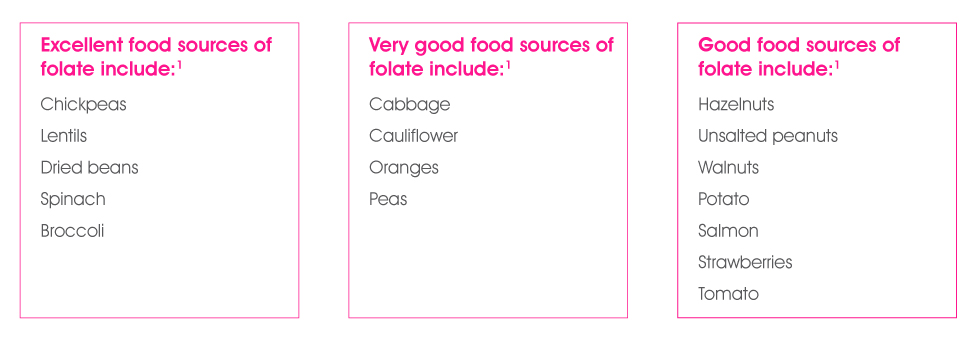Eating a well-balanced diet that consists of various foods is always important, but it's especially important when you're expecting a baby. Diet during pregnancy impacts the health of not just one but two individuals. While the general principles of good nutrition remain more or less the same, some nutrients need particular attention during pregnancy- folic acid is one of these.
What is folic acid?
Folic acid is a B vitamin. It is the man-made form of folate used in supplements and fortified foods.
Why is folic acid so important during pregnancy?
Folic acid protects your unborn baby from severe birth defects of the brain and spine (called neural tube defects). Some examples of neural tube defects are:
- Spina bifida- This defect happens when a baby's spinal column doesn't close completely.
- Anencephaly- This defect happens when a baby's brain and skull do not develop properly in the womb.
Some studies show that folic acid also helps to prevent cleft lip and cleft palate. Cleft lip and cleft palate occur when tissues in the baby's lip and mouth (palate) don't fuse properly, resulting in a gap or split.
Taking sufficient folic acid every day before getting pregnant and during early pregnancy helps reduce the baby's risk of neural tube defects.
When is the best time to start taking folic acid?
Most defects of the brain and spine happen in the first few weeks of pregnancy, often before the woman realizes she is pregnant. Hence all women who are trying to get pregnant or who might become pregnant should take folic acid daily.
How much folic acid does a pregnant woman need?
For most women, a daily dose of 400 micrograms (400 mcg) of folic acid is sufficient. However, it's best to consult your doctor and follow his/her recommendations.
How to get enough folic acid?
- Eat a varied diet that contains folate. Some fruits, vegetables, and nuts naturally contain folate.
- Take a multivitamin or a prenatal supplement with folic acid in it.
What foods contain folate?

References
- Better Health Channel. Pregnancy and diet [Internet]. Available at: https://www.betterhealth.vic.gov.au/health/healthyliving/pregnancy-and-diet. Accessed on Aug 18, 2020.
- Mayo Clinic. Pregnancy diet: Focus on these essential nutrients [Internet]. Available at: https://www.mayoclinic.org/healthy-lifestyle/pregnancy-week-by-week/in-depth/pregnancy-nutrition/art 20045082#:~:text=Leafy%20green%20vegetables%2C%20citrus%20fruits,sources%20of%20naturally%20occurring%20folate.&text=In%20addition%20to%20making%20healthy,enough%20of%20this%20essential%20nutrient. Accessed on Aug 18, 2020.
- The Office on Women's Health. Folic acid [Internet]. Available at: https://www.womenshealth.gov/a-z-topics/folic-acid. Accessed on Aug 18, 2020.
- The Society of Obstetricians and Gynaecologists of Canada. Your pregnancy-Folic acid. [Internet]. Available at: https://www.pregnancyinfo.ca/your-pregnancy/healthy-pregnancy/folic-acid/. Accessed on Aug 18, 2020.
- March of Dimes. Folic acid [Internet]. Available at: https://www.marchofdimes.org/pregnancy/folic-acid.aspx#. Accessed on Aug 18, 2020.
- Mayo Clinic. Cleft lip and cleft palate [Internet]. Available at: https://www.mayoclinic.org/diseases-conditions/cleft-palate/symptoms-causes/syc-20370985#:~:text=A%20cleft%20palate%20is%20an,occur%20without%20affecting%20the%20lip. Accessed on Aug 18, 2020.



